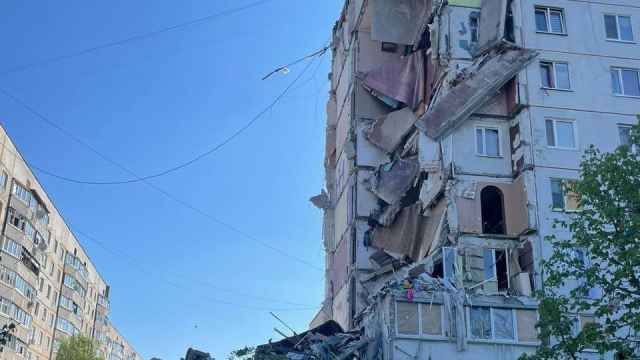A new wave of privatization is getting under way in Russia. Property that until now had been in the hands of the state is being put up for sale. The list of companies that the government plans to sell in full or in part is impressive. This year, state holdings in Sovcomflot and Sberbank are slated to be sold. Sovcomflot owns 132 vessels and is among the five largest ocean-going tanker operations in the world. Sberbank is one of the leading financial companies in all of Eastern Europe.
State holdings in RusHydro, the Federal Grid Company and VTB are also being prepared for sale in 2012. The remaining major state holdings will be sold in 2013, including another stake in VTB and shares in Rosneft, Russian Agricultural Bank, Rosagroleasing and Russian Railways.
When asked why this round of privatization is needed in the first place, government officials mumble something unintelligible about the poor investment climate and complain about the lack of money in the budget. Nothing more is asked of these officials. And liberal economists are always so convinced that such assets are best held in private rather than government hands that they demand no proof or justification for the sales.
But the few studies that have been done on this subject reveal a far more complex picture. Polish economist Tadeusz Kowalik analyzed the results of privatization in Britain under Prime Minister Margaret Thatcher and found that the process had no impact whatsoever on the overall effectiveness of those companies. True, the performance of some companies improved, but for others it worsened or stayed the same. On average, no radical changes took place. In fact, the privatization process was intended for and achieved a very different purpose — the redistribution of power and property, the undermining of the labor movement and trade unions, the elimination of the welfare state and the weakening of the government’s ability to influence the economy.
Russia is pursuing exactly the same goal but has stated it even more explicitly. The investment climate will probably worsen as a result of the privatization deals due to the inevitable corruption involved. At the same time, the “investment climate” that economists love to analyze has about as much significance during an economic crisis as questions of soil quality have during an earthquake. Whatever the “climate” might be, investors only open new businesses when there is demand for their products. And where will increased demand come from if the economy and the people cannot find means for development?
It also seems unlikely that the authors of the privatization plan will manage to augment state coffers as promised. They estimate that privatization sales will generate about 1 trillion rubles ($35.3 billion) of income. That sounds like a lot. But is it really so much when spread out over three years? The main problem is that as each company is sold, the government loses that much more long-term income to support the budget. And if government officials can’t effectively manage the money already entrusted to their care, on what basis can we believe that they will spend this windfall in the public’s best interests?
And that’s not all. Once the privatization revenues disappear like all the money before it did, how will the state replenish its coffers? Unload even more shares? What will the government do once all the state’s assets are gone? Obviously, not this administration but a subsequent one will be saddled trying to solve that riddle.
Russian society might never obtain any benefit from the current round of privatizations, but that doesn’t mean that nobody will profit. As economist Maxim Kozyrev so aptly put it: Those who distributed state assets during the first wave of privatization will be the recipients this time around. That’s good news for Russian officials who dream of joining the middle class. This round of privatization will help those who failed to grab a piece of the pie 20 years ago to fulfill their dreams now.
Boris Kagarlitsky is the director of the Institute of Globalization Studies.






